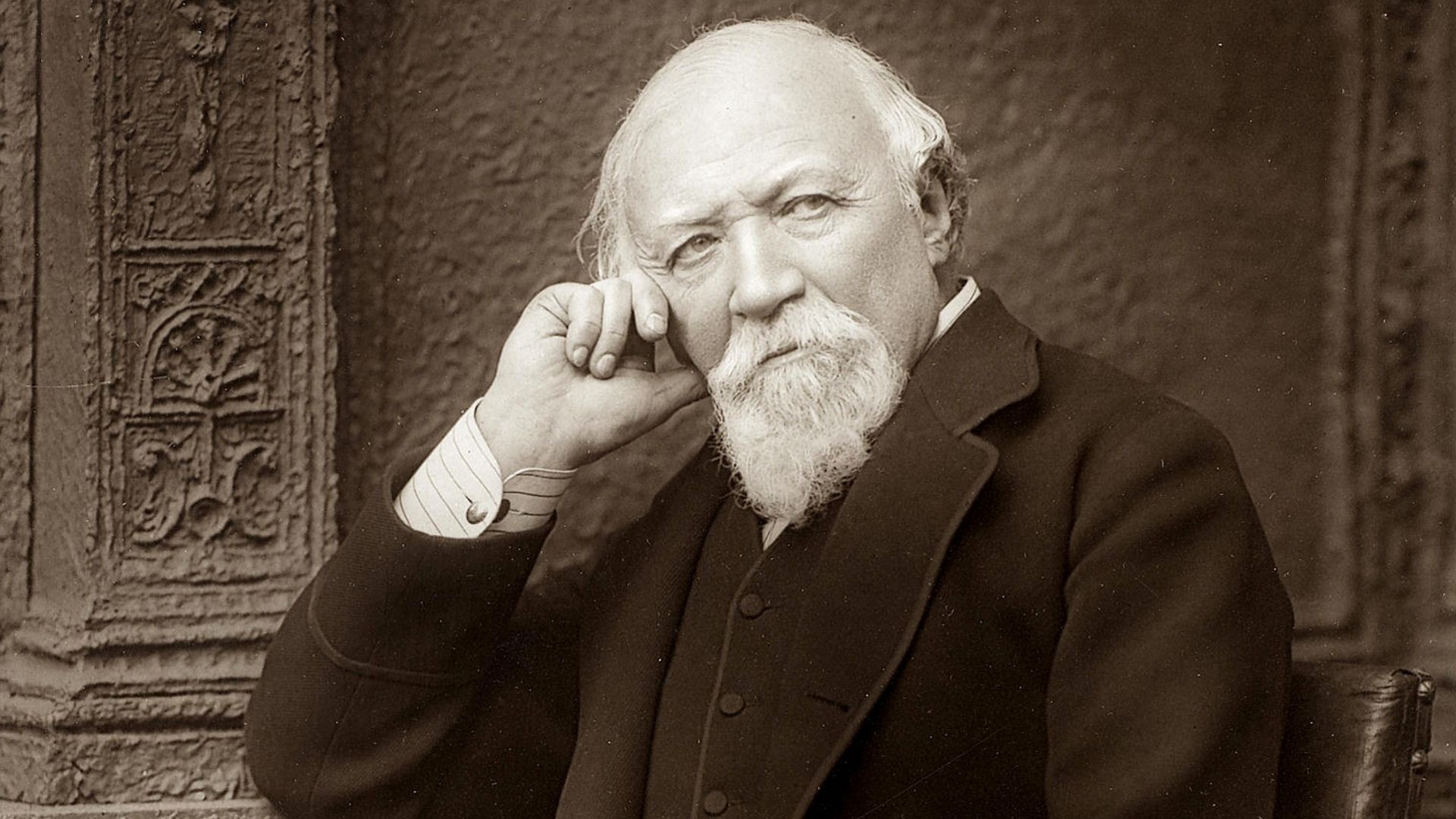Porphyria's Lover Comments
The rain set early in to-night,
The sullen wind was soon awake,
It tore the elm-tops down for spite,
And did its worst to vex the lake:
...
Read full text
It is significant to note the name given to the female in the poem. She could be the female protagonist or merely the victim of love. Either way, ..
Porphyria's lover cannot stand for blaze the grate up, cannot stand by her. He cannot live alone, but he killed her despite her care. He must die from hunger, he didn't say " Eli, Eli, Lema Sabachthani? " , and his god told nothing to him, because he is not alone.
The narrator of " Porphyria's Lover" is a man who has murdered his lover, Porphyria. He begins by describing the tumultuous weather of the night that has just passed. It has been rainy and windy, and the weather has put the speaker in a melancholy mood as he waits in his remote cabin for Porphyria to arrive.
The characters in Browning like the Duke of Ferrara or The Pied Piper or this one, the lover of Porphyria seem to perform acts of madness to solve some unbearable personal problem.Shakespeares characters like Hamle or Lear go mad and Othello has a fit in his distress.The resolution in Shakespeare of his tragic figures is in their death.But Browning does not permit his main characters death; you are left with this madness and moral chaos,
Out of his love for his dearest Porphyria. Srimayee, you are looking at the trees, not the woods! , that is to say, you are looking at the lover of Porphyria; You are not able see him, ; you are not able to read the poetry either.
I discovered Browning's well known for his dramatic monologues. I read it in class yesterday and because the way he describes the murder so explicitly was actually quite shocking. It was like the roles had flipped in some way.
we did this in class and i wrote a real long message about it but now its gone andcant b bovd 2 rite again
The clear-cut narrative line of this atmospheric poem is presented in rhymed couplets.The ‘sullen wind’ at the start ‘which tore the elm tops down for spite’ introduces an ominous note, foreshadowing what is to come. Porphyria glides in like a ghost or figment of the imagination, warming the cottage with her presence. What follows has an air of inevitability. She loves the speaker, and is accommodating to his wishes in the extreme, and he takes advantage of this. Love is too easy, and only way he thinks to keep her as his forever is to strangle her with her own hair, which he does as a painless alternative to love making, merely as ‘a thing to do.’ Porphyria’s lover is also her killer. This makes the deed even more terrifying than a murder in cold blood, and reminds me of Oscar Wilde’s saying that we always kill the thing we love.In his closing lines, Browning implies that God is indifferent, even to murder.
this author is palying with words and giving his poem a sense of love. in some extent it sounds that hero of this poem is psychologically distressed. he kills person who he loves and and then mirroring her behaviour towards him. this poem is full of enjambments and it has alternative rhyme.

2) . Either way, Browning has named her Porphyria. And the word stands for Porphyria is a group of disorders caused by an over-accumulation of porphyrin which helps haemoglobin, the protein that carries oxygen in the blood